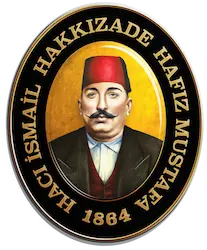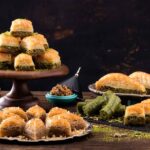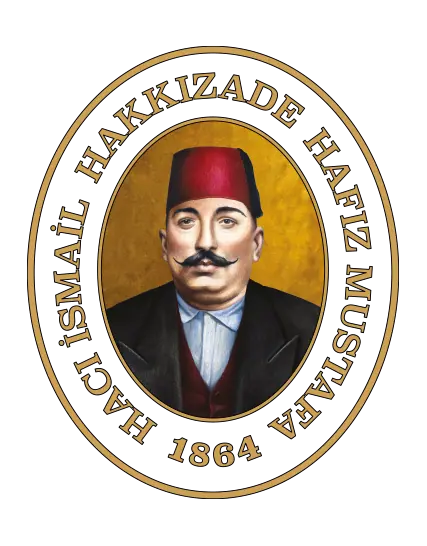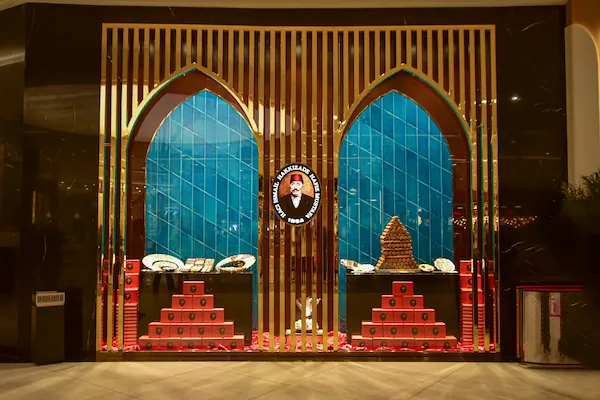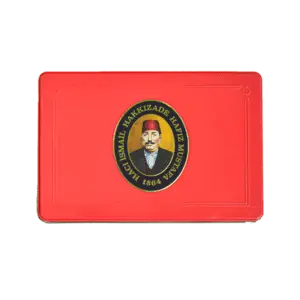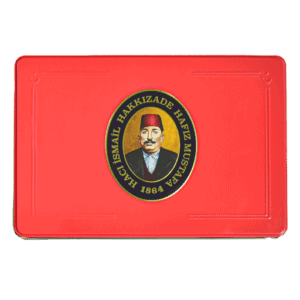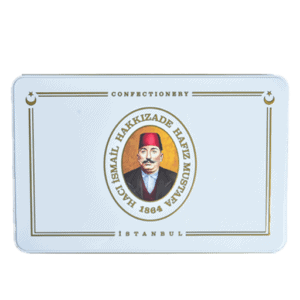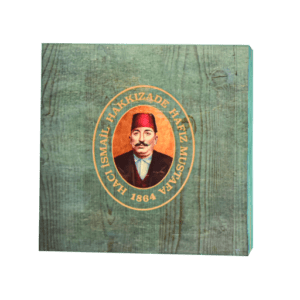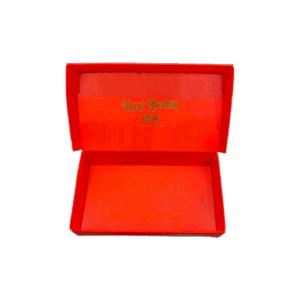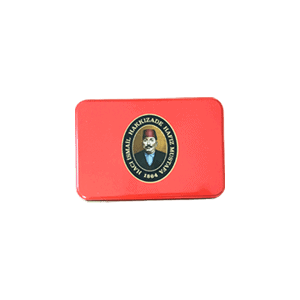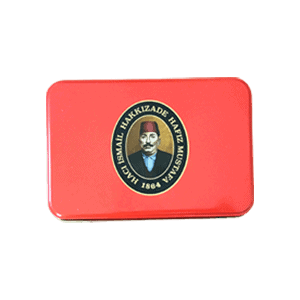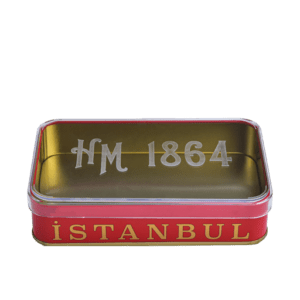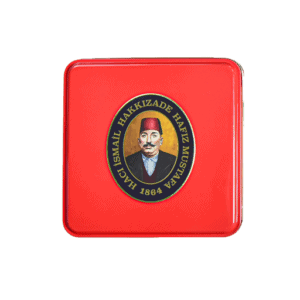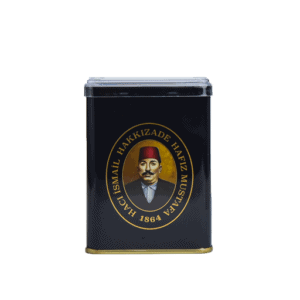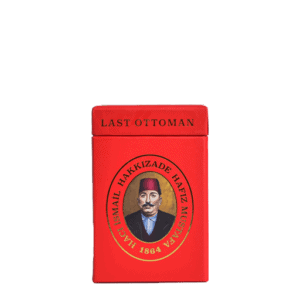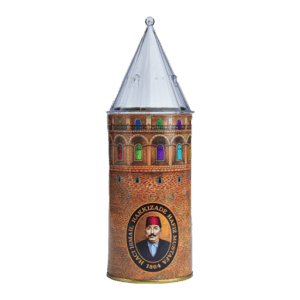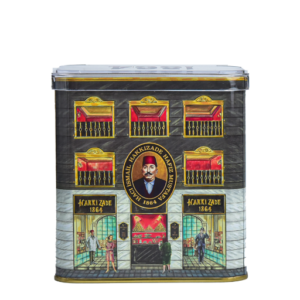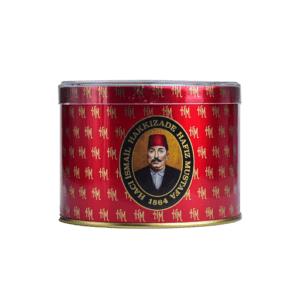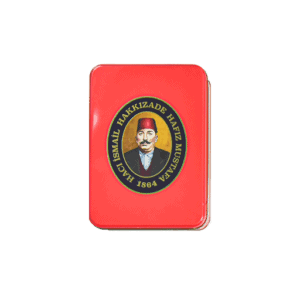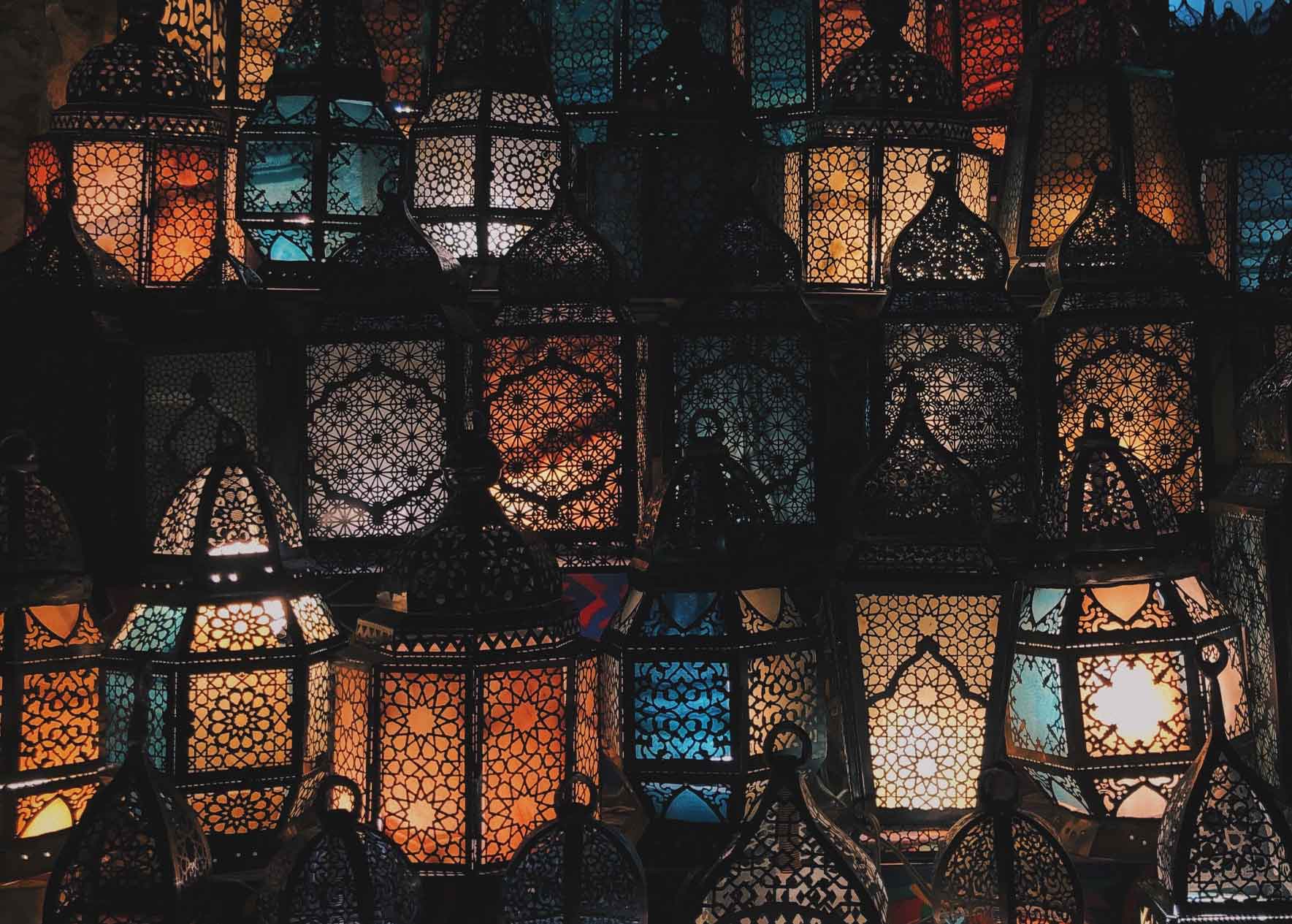
Delectable Ramadan Traditions
Ramadan is an important religious and cultural event observed by Muslims worldwide. It is a month of fasting, prayer, and introspection, during which Muslims abstain from food, drink, and other physical needs from dawn until sunset. Ramadan is not only a spiritual exercise, but it is also a time for strengthening family and community ties and sharing cultural traditions. One such tradition is the importance of desserts on the Ramadan table.
Desserts have always played a significant role in Muslim cuisine, especially during Ramadan. It is customary to break the fast with a sweet dish or beverage, such as dates, which are Prophet Muhammad’s favorite food. In many Muslim countries, various desserts, such as kadayif, delight, baklava, puddings, kunafa, and more, are specially made for Ramadan.
The importance of desserts on the Ramadan table goes beyond satisfying one’s sweet tooth. Desserts are a symbol of generosity and hospitality. Muslims believe serving sweets to guests during Ramadan is an act of charity and a way to honor the holy month. It is a gesture of goodwill towards friends, neighbors, and family members, strengthening the bonds between people.
Desserts are an integral part of the Iftar meal, which is the meal that Muslims eat after breaking their fast at sunset. The sweet taste of desserts helps to restore energy and sugar levels in the body after a long day of fasting. It also provides comfort and happiness, especially after a day of sacrifice and self-discipline.
Desserts have cultural significance in Muslim communities. Each country has its unique set of traditional sweets prepared during Ramadan, reflecting the diversity of the Muslim world. Desserts are not only a means of satisfying one’s appetite but also a way of connecting with one’s cultural heritage.
The importance of desserts on the Ramadan table cannot be overstated. They are more than just a sweet treat; they symbolize generosity, hospitality, and cultural identity. The Ramadan table without desserts would be incomplete, as it is an integral part of Muslim culture and tradition.
Hafiz Mustafa’s glucose syrup-free desserts are a fantastic option for people who want to enjoy sweets during Ramadan without compromising their health. Our desserts are not only delicious and satisfying but also organic, additive-free, and preservative-free. Whether breaking your fast or preparing for sahur, Hafiz Mustafa’s glucose-free desserts are a guilt-free indulgence you can enjoy with peace of mind.
Unlike many other desserts in the market, Hafiz Mustafa’s desserts are made from natural ingredients and do not contain any artificial additives, preservatives, or flavorings.
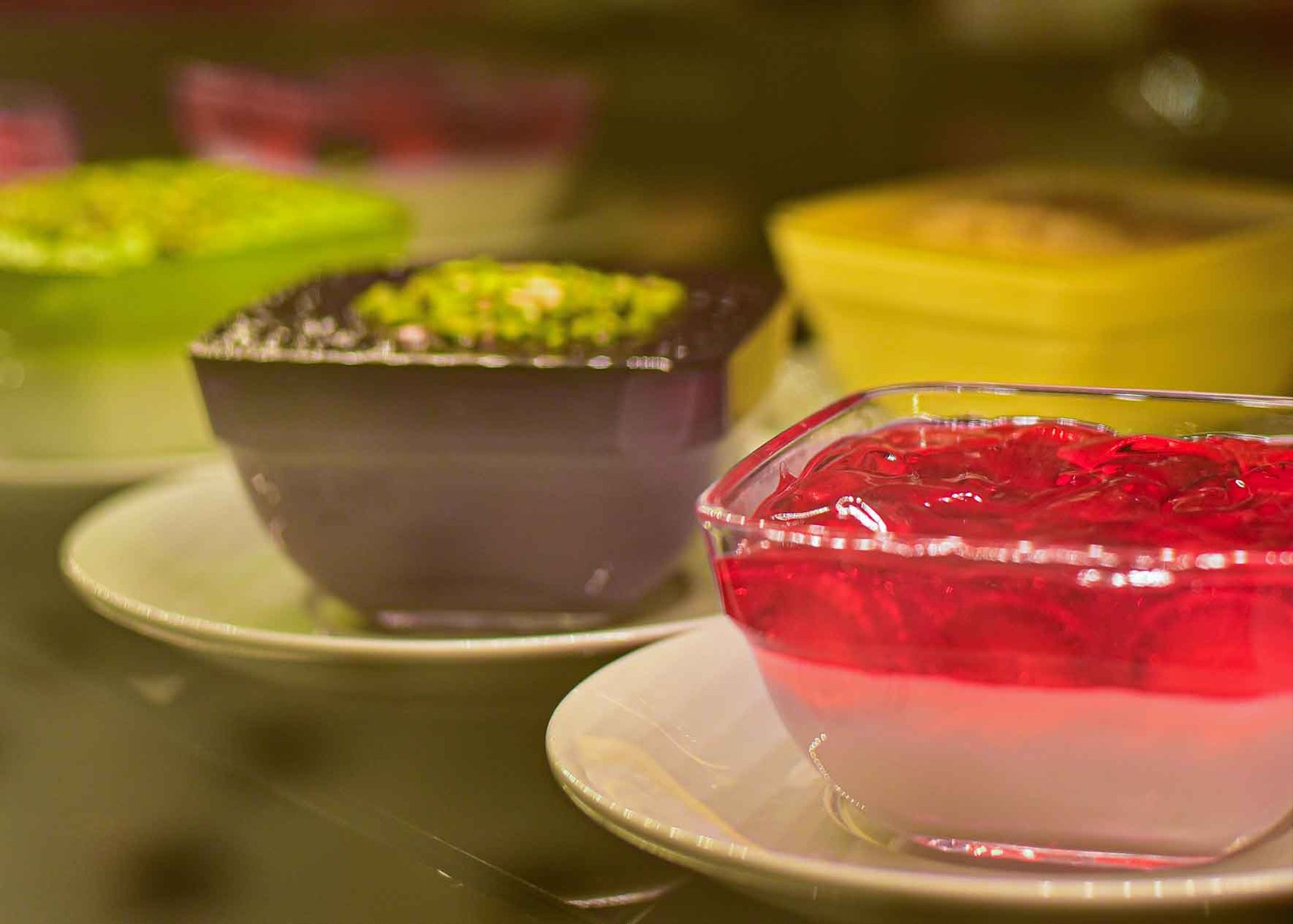
Puddings Prepared for Iftar
HAFIZ MUSTAFA 1864
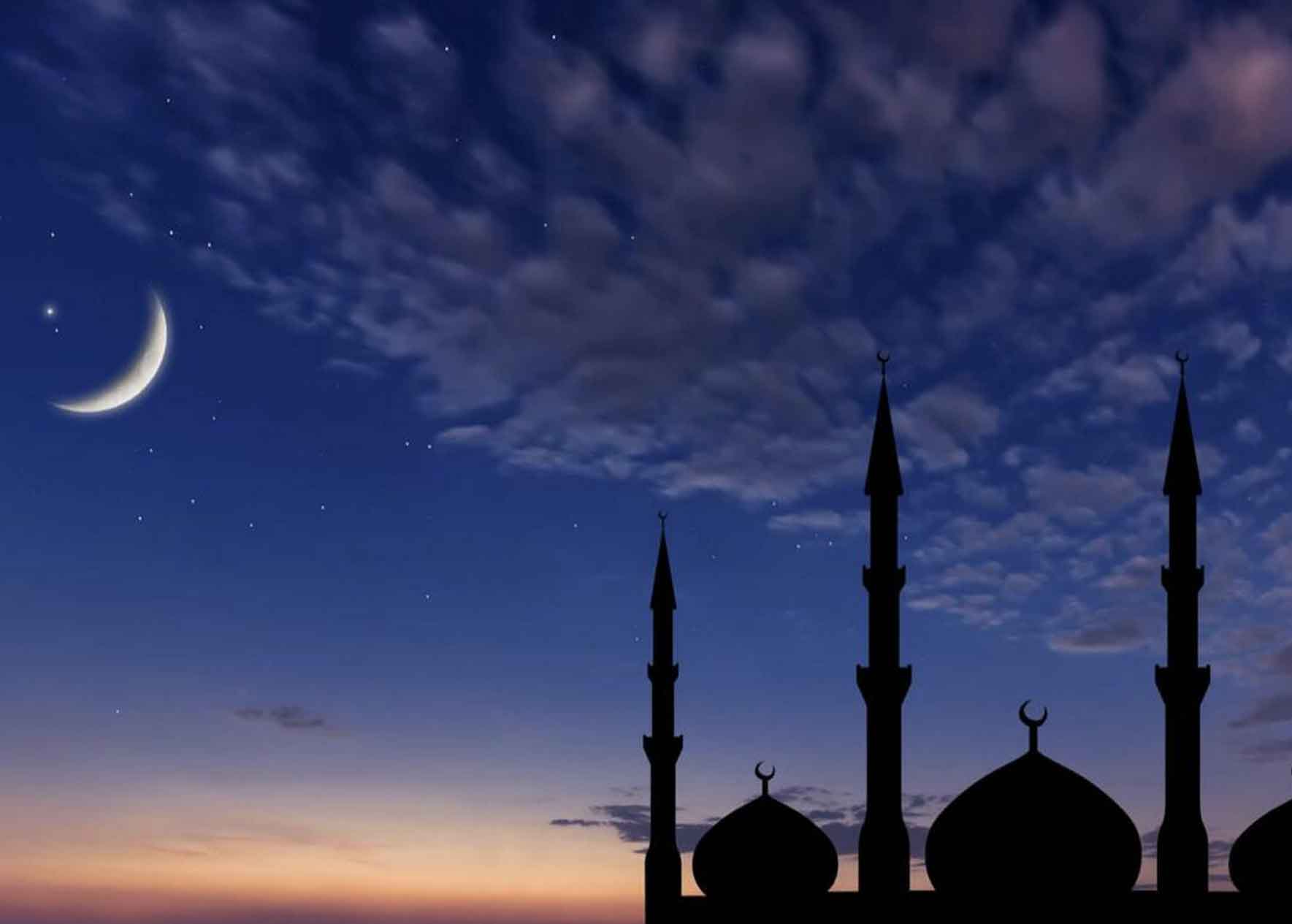
A Silhouette of Iftar Time
HAFIZ MUSTAFA 1864
Ramadan Customs and Traditions in the Ottoman Empire
During the Ottoman Empire, the less fortunate were invited to break their fast in wealthy mansions. Uninvited guests were welcomed and considered “guests of God”. The host, special guests, and others had separate iftar tables, but they were all served the same food. The fast was broken together, and even middle-class families celebrated iftar dinner seven nights a year. The most beautiful tradition was paying off debts in the “zimem book,” where grocers, greengrocers, and butchers recorded their credit sales to the poor. During Ramadan, a well-to-do person would visit the grocer and pay the debts of the first 20 people. Sometimes, a single person would close the debt book. Neither the debtor nor the payer knew who paid the debt, making the rich humble and the poor grateful.
It was essential to care for the poor and share iftar during Ramadan. Hosts would give a gift called “tooth rent” to their guests, depending on their income, such as socks, rosaries, money, bowls, or gold. This was the host’s way of thanking the guest by saying, “You came to my house and helped me earn good deeds.” People also exchanged gifts in government offices or neighborhoods.
Throughout history, people have longed for the past. When some say, “How beautiful the Ramadan of the past was,” this longing is for collectivity. Ramadan is a family affair where families break their fast, perform tarawih, wake up for sahur, and celebrate Eid together. It is also a month that strengthens extended family, kinship, and neighborliness. In today’s modernized and individualized society, where old family values are scarce, this is one reason for the longing for the past. It’s not just about Ramadan; it’s about old associations, getting along well, longing for the past, and collectivity.
Ramadan is a month of worship, and during the Ottoman Empire, different rituals were practiced in the palace and society. However, the essential thing was that everything was done collectively. Food was bought before Ramadan, and the poor were taken care of. Ramadan is a culture that brings people together to enjoy delicious meals and spend time with their families, neighbors, and friends.
You don’t have to be profoundly religious or a devout Muslim to eagerly await Ramadan. Supplies are stocked, and the best meals are prepared for oneself and guests, according to one’s budget. The poor in the city are also fed, and everyone gives iftar according to their means. Money is donated, and tips are collected, making it a month when bellies are full. However, during the Ottoman Empire, people did not work during the day; instead, they mainly socialized at night and worked during the day, which organized the city’s rhythm.
